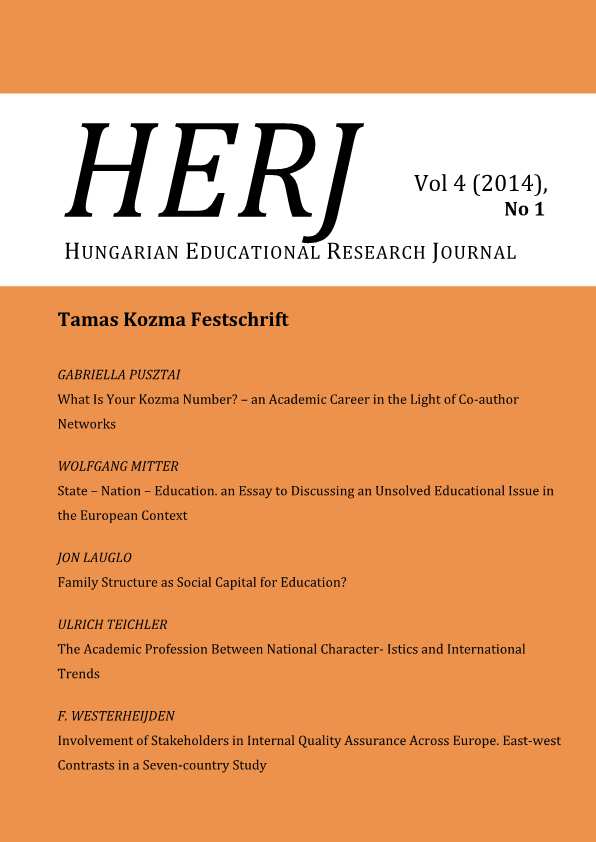Family Structure as Social Capital for Education?
Family Structure as Social Capital for Education?
Author(s): Jon LaugloSubject(s): Education
Published by: Hungarian Educational Research Association (HERA)
Keywords: adolescents; educational achievement; family structure; Norway
Summary/Abstract: Does family structure influence academic performance of adolescents? Using family-based ‘social capital’ as a heuristic device, this study analyzes data from Norwegian official registers on a cohort that in 2004 completed the lower-secondary stage of compulsory basic education. Both before and after controls for parental education attainment, the findings show that adolescents growing up in traditional nuclear families (with both their parents who are married to each other) on average perform better than those growing up with cohabiting parents. The contrast is stronger with other family types (single parent, or one of their parents and a step-parent). These findings fit Coleman’s argument about family-based ‘social capital’, but other explanations are also possible.
Journal: HERJ Hungarian Educational Research Journal
- Issue Year: 4/2014
- Issue No: 1
- Page Range: 17-25
- Page Count: 9
- Language: English

